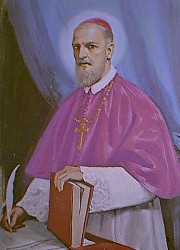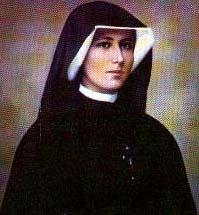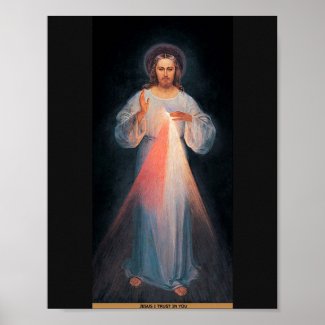
Francis was born into an era which would prove to be troublesome for the Church, for in the sixteenth century the Reformation would bring the Catholic Church into crisis mode, as Martin Luther defied Rome and so was excommunicated in 1520.
Francis was born to a noble couple in the year 1567 in the Savoy region of France. Both his parents, Francois and mother Francoise, were deeply devout and from them Francis also learned to love the Faith which would also lead him to the Priesthood. At first Francis parents tried to persuade their son into a profitable career, and to marry a woman of similar nobility, but after a struggle Francis parents capitulated to their son embracing the Priesthood.
His parents would also provide a good example to the young Francis as he watched them practice the corporal works of mercy and their compassion for the underprivileged in the society around them. So even though Francois and Francoise were of noble birth, still they were not haughty or prideful and treated all with respect and courtesy.
Francis at the age of 13 left home to study with the Jesuits in Paris, where he was instructed by some of the best teachers and was guided as to the Teachings of the Church, this sound teaching would hold Francis in good stead in the foreseeable future. From Paris Francis then completed his studies at Padua where he studied law, to please his father and studied theology in his spare time. Through this difficult time of trying to please both his Father and the call he felt towards the Priesthood, Francis spent much time in prayer about his situation. It was not until Francis was offered the position of Provost of Geneva that his father finally gave up the struggle and allowed Francis to follow his longing to enter the Church.
And though Francis was now able to pursue his dream he found himself beset with doubts and scruples of what he felt were his inadequacies. But upon praying in Church, all of Francis doubts were removed, and in 1593 Francis was ordained into the Priesthood. This was a great honour for Francis parents who attended his first Mass, whereupon they received the Eucharist from the hands of their own son, what a blessing!
And though God had blessed Francis with a high intellect still Francis spoke as one to his parishioners, as he served them with compassion, mercy and love. Father Francis kept his sermons to the point and did not expound on deeply theological issues to the people of his parish, for he was a man of the people and was able to convey his love of God in a simple context without compromising God's Truth.
It was this love of Divine Truth that set Father Francis in conflict with the people of Chablais, where many had embraced the teachings of Calvin. It was here that Francis would prove himself a great son of the Church as he fought Calvin's heresies not by direct attack but by his letters which denounced each and every Calvinistic heresy! Through this non aggressive approach the people of the region began to listen to Fr. Francis and to re think their break with the one True Church. Francis love of the Faith and his diplomatic skills were certainly in evidence when confronting the people of Chablais, who were won over by his obvious piety and sanctity.
But Francis though gentle by nature was no pushover and once he had denounced the Calvin heresy then demanded alongside the Duke of Savoy that all who preached a different Gospel should be expelled from the region, rather than re-contaminate the good which had been done. Francis being prudent by nature was well aware that one bad apple could once again infect the area with the same heresies as before, the Duke of Savoy agreed and expelled all Calvinistic Ministers from the region.
In 1602 Francis once again returned to Paris a city which was close to his heart, Francis at this time also formed a strong friendship with Henry IV and other members of the nobility, for though Francis truly loved and esteemed the poor, he also did not show favouritism when speaking about the Faith, and so he treated both poor and rich with equality.
Upon the death of Bishop de Granie, Francis then became Bishop of Geneva in the year 1602. He set about restoring all things proper back to the Church and visited many parishes as he also reformed many of the Religious Orders. But Francis personality was such that he could win people over to what is pleasing to God. Through his own diplomatic skills he was able to soothe many a ruffled feather, and by his patient and gentle manner he was able to persuade many to follow the Church and its Teachings without compromise.
Bishop Francis worked so hard it is a wonder if he ever found time to rest, for though he would accomplish many things his greatest love was for prayer and through prayer comes action. Through everything Francis retained a deep love for those less well of and tried to the best of his ability to ease their hardship. This was done in several area's for Bishop Francis also began a course of teaching the Faith to both young and old in order to build up the Faithful and keep the Protestant Reformation from overtaking the one true Church. He did this in such a skilful way that he won the admiration of both rich and poor alike, for Francis though a Bishop of the Church, practiced an austere life and did not grant himself special privileges.
During this time he would come to meet a woman and it was to Jeanne de Chantal that Bishop Francis would come to impact and change the course of her life. Bishop Francis could also count Vincent de Paul amongst his closest friends for all three were truly devoted to the poor and their plight. And it would be with Jeanne de Chantal that he would begin his Order, 'The Institute of the Visitation of the Blessed Virgin' which overtime would become known as the 'Visitation Order'.
Francis de Sales was not only a great man of Faith, he was also a man of great heart, who with conviction, firmness, gentleness and compassion spread the message of the Gospels. To love one another, Bishop Francis lived this creed to the end.
Francis de Sales died in the year 1622.
Saint Francis de Sales was Canonized in the year 1665 by Pope Alexander VII. He was declared a Doctor of the Church by Pope Blessed Pius IX in 1877.
Some Quotes
"Be who you are and be that well."
"Do not lose courage in considering your own imperfections."
"Do not wish to be anything but what you are, and try to be that perfectly."
"Never be in a hurry; do everything quietly and in a calm spirit. Do not lose your inner peace for anything whatsoever, even if your whole world seems upset."
"Nothing is so strong as gentleness, nothing so gentle as real strength."
"When you encounter difficulties and contradictions, do not try to break them, but bend them with gentleness and time."
"Those who love to be feared fear to be loved."












